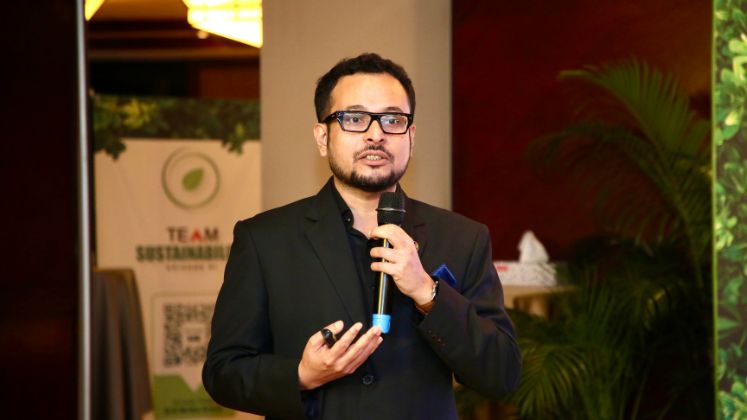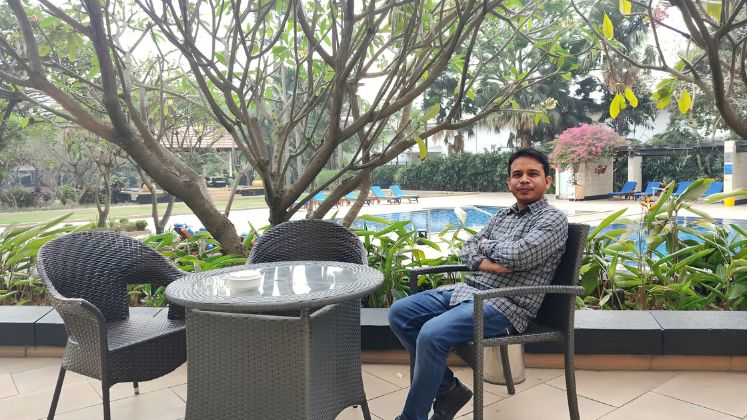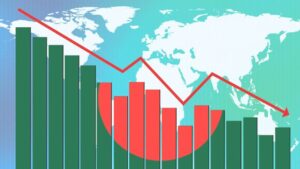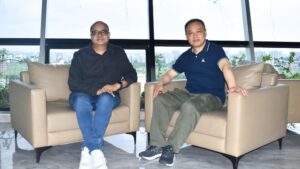If, in the last decade, any apparel manufacturing destination has made remarkable progress on the sustainability front, Bangladesh is undoubtedly on the first rank. Be it the highest number (214) of green factories across the globe with 500+ in the process of getting LEED certification; the thrust on worker welfare; the use of organic cotton; increasing focus on recycling raw materials; emphasis on circularity; various companies coming up with their sustainability reports; alignment with Sustainable Development Goals (SDGs); collective efforts for the society and much more. There is no doubt that sustainability is like a license to operate and all such initiatives are a must for a country that is the second-highest apparel exporter in the world. The visionary leadership of the RMG export fraternity deserves appreciation for their sustainable commitment, but at the same time, the executors of such initiatives are sustainability professionals who have put their blood and soul into this!
Sustainability getting embraced as a culture despite challenges
Companies are making sustainability a culture in their organisations. This entails more than mere certification acquisition. It even includes cultivating a mentality in which sustainability factors are seamlessly integrated into each decision-making process, spanning from procurement to production to distribution, promoting employee engagement through training and awareness programs and establishing mechanisms for ongoing improvement and accountability.
To make sustainability truly a culture, sustainability professionals encounter various challenges including teams’ resistance to change, entrenched mentalities, the intricacies of supply chains and the delicate balance between short-term business objectives and long-term sustainability goals.
To ensure the involvement of the entire workforce, companies are closely collaborating with internal product development and production teams, as well as with clients and vendors, to incorporate sustainability considerations during the product development and design phases.

Team Group is one of the most respected groups in Bangladesh and its Head of Sustainability, Mohammad Monower Hossain shared that to make sustainability a culture, he had to convince various teams that sustainability starts where compliance ends.
“The first and foremost important task for me was to navigate the department within the organisation and create/craft a strong functional relation amongst all other departments, functional areas through a Strategic Sustainability Vision 2030 for Team Group,” he said.
At the environmental level, this strategic vision of Team Group includes integrating 50 per cent sustainable materials and resources mix, achieving a 90 per cent reduction in water footprint, ensuring zero usage of hazardous chemicals, digital data disclosure and achieving 100 per cent carbon-neutral status for the factory. Similarly there are impressive targets on other fronts like social (establishing 100 per cent implementation of living wages) and Governance (ensuring 100 per cent accessibility to consumers).
Mohammad Monower planned a yearlong awareness training program on the basics of sustainability and initiated the first sustainability report of Team Group based on the guidelines of the Global Reporting Initiative (GRI).

Similar steps are being taken by other leading RMG companies too as ABM Faqrul Alam, Group Head of Sustainability, Urmi Group, informed, “To ensure congruence with our overarching sustainability objectives, we have established cross-functional sustainability committees, incorporated sustainability metrics into performance evaluations and implemented comprehensive sustainability training programs.”
ABM Faqrul Alam has also worked as a Sustainability Lead for well-known companies like Dekko ISHO Group, Purbani Group, Newage Group and ACME Group.
As per him, the areas of focus include developing good governance and a well-structured management system including environmental management, energy management, people management, chemical and discharge management, supply chain management and grievance management. Employees still remain the most important priority as they are the key to ensuring an organisation’s sustainability.
All this led the Urmi Group to implement overall sustainability management within and outside the organisation.
“In my capacity as a sustainability professional, I have confronted a multitude of obstacles, encompassing resource constraints, opposition to change and the navigation of intricate regulatory environments. To surmount these obstacles, I have implemented a comprehensive strategy that incorporates stakeholder involvement, strategic alliances and inventive resolutions, besides constructing a persuasive business rationale for sustainability, illustrating concrete return on investment,” said ABM Faqrul Alam.
Along with the focus on building strategic partnerships with suppliers and other stakeholders, the thrust of the industry is also on fostering collaboration to share resources and implement best practices throughout the supply chain.
“Challenges persist, particularly in meeting the diverse demands of customers. Differing targets and programs among customers often lead to duplication of efforts, complicating sustainability initiatives. Addressing these issues requires innovative solutions and collaboration across sectors,” believes Md. Monirul Islam.
Sewtech Fashions Ltd., (associated with Shahi Exports, India) has aligned with its commitment to both people and the planet. It has made clear progress toward sustainability, integrating it into every aspect of operations – from policies to processes. Regular training on various sustainable initiatives and motivation to the team to carry out tasks in an environmentally responsible manner are routine activities for the company. For this, it has partnered with experts like BRAC (Bangladesh Rural Advancement Committee) and established a dedicated in-house training program.
CSO is a must for the industry!There are a limited number of large companies in Bangladesh having a Chief Sustainability Officer (CSO). There are other companies where professionals across compliance, labour welfare and HR teams manage sustainability. But for large-scale companies, CSOs are a must as a CSO plays a pivotal role in driving the organisation’s sustainability agenda, aligning it with the business strategy and ensuring that sustainability considerations are integrated into decision-making processes at all levels. The CSO serves as a catalyst for change by championing sustainability initiatives, engaging with stakeholders and holding the organisation accountable for its environmental and social impacts. By having a dedicated executive focused on sustainability, RMG export houses can not only mitigate risks and comply with regulations but also unlock new opportunities for growth, innovation and positive impact. Through the implementation of a CSO’s leadership, organisations can optimise decision-making processes, increase transparency and take advantage of nascent sustainability prospects by consolidating sustainability endeavours. CSOs don’t just ensure the growth of their organisations but their collective efforts also prove instrumental in improving the image of the entire industry. |
Leveraging data and technology
Sustainability professionals employ a multifaceted approach as they prioritise effective communication and stakeholder engagement. By leveraging data and technology, they streamline processes and enhance efficiency, facilitating smoother transitions toward sustainable practices.
Data collection across ESG has many focused areas for garment factories like water and energy conservation (factories have metres to monitor data on every floor, washing units etc.) that helps them to track in which conditions there was more consumption of resources like energy and water. Accordingly they manage to ensure minimum consumption. With regard to Governance, data collection is done in matters related to grievances, issues and development regarding anti-harassment, safety issues, utilisation of medical service by the workers, salary disbursement, gender and age-based data etc. All these are closely monitored and wherever improvements are required, data helps in taking necessary action.

Md. Monirul Islam, Manager – Sustainability, J.M. Fabrics Limited (New Asia Group), Gazipur also emphasises embracing data-driven decision-making in their sustainability endeavours. J.M. Fabrics Limited is currently in the trial stage of testing software called ‘SATTVA’, which offers a comprehensive solution for data-based sustainability management.
Team Group is using HRIS software for data collection. For the process of writing reports and collecting data from different departments, Team Group conducts a number of workshops to make everyone understand the importance of data and reporting. It has also developed a cloud-based software to collect all the ESG data from different strategic business units of the group.
To evaluate the ESG aspects of a RMG manufacturing factory, sample data could include:Environmental
Social
Governance
|
Privileges gained from changes
By placing sustainability as a top priority, Urmi Group has gained access to a multitude of benefits, such as an elevated brand reputation, strengthened relationships with stakeholders and increased operational efficiency. Furthermore, the steadfast dedication to sustainability has established the group as a frontrunner in specific sectors, enticing exceptional personnel and nurturing ingenuity.
“During my tenure in my past and present organisations, we have successfully onboarded globally renowned brands by portraying the sustainability initiatives we have implemented and are planning to implement,” said ABM Faqrul Alam.
Sustainability professionals highlighted that various stakeholders require a strong commitment from the organisation toward Sustainable Development Goals (SDGs) and leading RMG exporters have subdivided KPIs into small tasks and have completed many projects along with various local and global stakeholders which gives them competitive advantage to achieve SDG Goal 17, which is all about partnerships for the goals.
“Our factory Knit Asia Limited has gained numerous such privileges from our sustainability initiatives. It has notably achieved an impressive 99 points in the USGBC LEED certification process, positioning it as the world’s fourth greenest factory. Furthermore, our other company J.M. Fabrics Limited was honoured with prestigious awards from both customers and stakeholders, such as the HSBC Sustainability Award and the Leadership and Sustainability Award. Thanks to our true sustainable initiatives, we are also getting comparatively good price too,” said Md. Monirul Islam.
“Due to various sustainability activities, we have seen improvements in our workforce and we have also observed enhancement in resource efficiency and reduction of our environmental footprint,” spokesperson of Sewtech Fashion informed AOB.
Education and training regarding sustainabilityThere is a growing recognition of the importance of integrating sustainability into academic curricula and vocational training programs to equip future generations of professionals with the knowledge and skills needed to address complex environmental and social challenges. There is a competency gap in the workforce regarding sustainability, so there is enough scope for collaboration between the industry and academia, especially to increase research and innovation. The industry faces challenges in developing skilled talent to undertake new roles, particularly in the realm of sustainability. “The direct skill development of those involved directly in production is a familiar and often discussed topic, but the capacity building of mid-level management is equally important. And this capacity building is not necessarily as per the specific roles they are expected to perform, but according to the upcoming challenges the industry is about to face shortly – being relevant with the current trend in a nutshell,” briefed Mohammad Monower. |
Need to do more
No doubt, the Bangladesh RMG industry has made significant strides to adopt sustainability practices, however, there is still scope for improvement. Data transparency and environmental reporting, adopting a standard sustainability reporting framework to disburse good stories amongst all the stakeholders should be the priority areas.
On the other hand, bolstering worker welfare and women’s empowerment, ensuring good working conditions throughout the supply chain, advances in gender equality and diversity, reducing resource consumption and waste generation and embracing circular economy principles to minimise environmental impact should also be in the limelight.
ABM Faqrul Alam underlined that effective cooperation amongst government agencies, industry stakeholders and civil society will be essential for addressing the challenges and advancing the sector’s sustainable development.
To reduce carbon footprint to be in line with the Paris Agreement by increasing the usage of energy from renewable sources, ABM Faqrul Alam said, “As we don’t have sufficient rooftop spaces to accommodate the required renewable energy, we may have to heavily depend on I-RECs (International Renewable Energy Certificates) or other EACs (Energy Attribute Certificates). As a result, the operation cost would be higher and it would be tough to managethat within the current price offering from buyers.”
It is also shared by sustainability professionals that a crucial aspect is a shift in mentality towards understanding that investing in sustainability doesn’t necessarily equate to increased costs.







